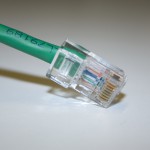“Nº24 06/2015”
Hacking Patriarchy: the first #femhack experience
by Digital Rights LAC on July 14, 2015

Many feminists are using the new technologies to promote and defend women’s rights, many women are becoming involved in technology projects: developing companies, writing codes, running online businesses, maintaining blogs on diverse subjects, keeping diary videos; the question remains: what can we do to bring them together?
The Internet in Mexico, two years after #ReformaTelecom
by Digital Rights LAC on July 14, 2015

The destiny of the Internet is key in any analysis of telecommunications reform (#ReformaTelecom) in Mexico, which included constitutional changes, as well as a regulatory law that will outline the guidelines of the regulator. International trends have been dragging their associated problems closer to Mexicans, to a point where it is impossible to escape them.
The friction between transparency and personal data protection in Peru
by Digital Rights LAC on July 14, 2015

hrough their decisions, the CC and PDPA acknowledge that reproducing certain personal data may affect the privacy of citizens. However, instead of preventing the affectation in origin, they limited themselves to punish third parties replicating what the State did in the first place. What are we really protecting by applying this criterion? Clearly, it is not the confidentiality of such personal data.
Open education and open educational resources in the Brazilian public policy
by Digital Rights LAC on July 14, 2015

OER are teaching, learning and research materials, fixed in any medium or media, preferably on platforms or open formats (free software), which are in the public domain or licensed openly, allowing them to be used or adapted by others.
Domain names: registration, regulations, dispute settlement in Argentina
by Digital Rights LAC on July 14, 2015

The domain names system, with its rules for registration and settlement of disputes requires permanent attention and revision. In this article we will review the main elements which the DNS consists of and we will then analyze the recent modification of the domain name dispute system in Argentina.





